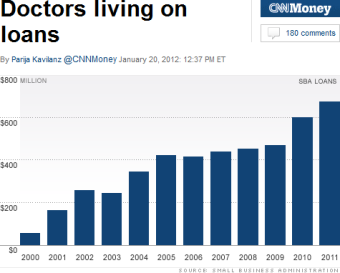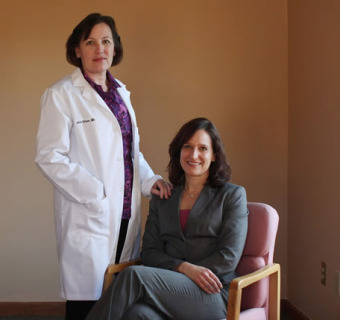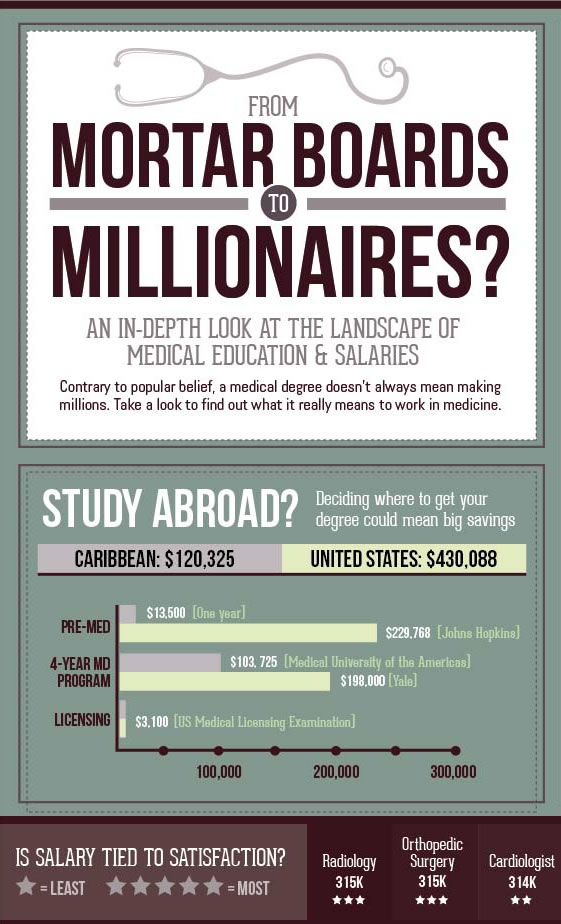Success! Now check your email to confirm your subscription.
Entries in Doctors & Business (25)

Non Clinical Revenue Generation
 Guest post by Jordan Grumet MD
Guest post by Jordan Grumet MD
Although I mostly expound on the trials and tribulations of practicing medicine, for a guest post, I decided to write about being a small businessman.
Running a successful private practice can be both difficult and time consuming. With the recent passage of health care reform, many physicians fear the security of their current income streams. As primary care doctors, we face the ultimate catch twenty two. The better job we do, the less outpatient visits and hospitalizations are necessary, the less money that flows through our doors. Talk about perverse incentives! Many have thrown their hands up in the air and joined the local hospital or medical group. For some of us though, the loss of personal freedom is a major concern.
So what is the burgeoning physician/entrepreneur to do? How do we continue to be captain of a ship that faces a tsunami of change? For me, the simple answer lies in maximizing non clinical revenue generation.
Over the years, I have established myself as a medical expert, nursing home director, and writer. Each of these activities provides consulting fees that are more lucrative than patient visits, require little or no overhead, and develop new personal goals and interests.By diversifying my skill set, I have created a more stable and enjoyable practice environment. Furthermore, my time spent in the clinic is more concentrated and busier than ever. I no longer need to try to actively recruit new patients.
There are many different nonclinical revenue streams available to physicians. Besides those mentioned above, there are opportunities with pharma, chart review, and biotech to name a few. Either way, I no longer worry about the traffic through my exam room door. Most importantly, I am able to practice parsimonious, appropriate care and still bring home a salary that I'm proud of.
And I learn something new each day.
About: Jordan is an Internal Medicine physician practicing in Highland Park, Illinois. He blogs at In My Humble Opinion.

Average 2011 Physician Income By Specialty

Average physician incomes by specialties for 2011

Doctors Living On Loans

CNN Money has a story about the increasing number of doctors living on SBA loans.
Read the entire story here
Dr. Bryan Glick, a family physician, took out a $198,000 SBA loan to start his own practice in Anthem, Ariz., shortly after graduating from his residency in 2009.
Doctors: Why we can't stay afloat
That loan sustained his practice for more than a year, but he still was not making money.
So he took over a concierge practice 30 miles away in Scottsdale. His concierge medical practice doesn't accept any insurance and charges an annual membership fee ranging from $3,000 to $5,000 for unlimited doctor visits and cell phone and e-mail access.
He continues to operate his traditional private practice. The concierge practice has helped Glick work off his SBA loan. He's now contemplating a second SBA loan to expand that practice.
Jasser has thought about the concierge model, too. But he acknowledged that it's not an option right now.
"Half of my patients are on Medicare," he said. "For economic and ethical reasons, I can't do it."
What's the cause? Certainly there are market forces at work, but there are also just basic business and economic changes that many physicians are having a great deal of trouble coping with; How to pay staff and make them more productive, how to structure their business, how to get paid, and how to attract the number of paients that they need.
There are titanic changes that have started and the speed with which they'll take effect will only increase. With change comes opportunity. Therer are plenty of docs who are doing just fine and makeing more money than every.
Physicians who cling to the old world will be destined to go down with the ship.

A Harvard Doctor’s Cancer Survivors Startup: Julie Sivler MD
 Oncology Rehab Partners is looking to better cancer survivors quality of life.
Oncology Rehab Partners is looking to better cancer survivors quality of life.
Dr. Julie Silver is pretty damn busy these days. She's an assistant professor at Harvard Medical School and the Chief Editor of Books at Harvard Health Publications, the consumer health branch of Harvard Medical School, and the director of the Harvard CME course "Publishing Books, Memoirs and Other Creative Nonfiction", Julie has founded and runs a medical startup focused on accrediting hospitals through Oncology Rehab Partners.
She's also an author here on Freelance MD of course. Read all of Julie Silver's posts here.
From the Bloomburg article

Physicians Starting A Company
How do you start a company as a physician?
Many physicians are looking to start new ventures. In this presentation, Dr Michael VanRooyen discusses his esperiences building for-profit companies as well as his ventures building humanitarian solutions.
Michael VanRooyen MD MPH FACEP
Dr. VanRooyen is the Director, Harvard Humanitarian Initiative as well as the Director of the Division of International Health and Humanitarian Programs, Department of Emergency Medicine, Brigham and Women's Hospital. He is also an Associate Professor in the Department of Global Health and Population, Harvard School of Public Health and an Associate Professor of Medicine, Harvard Medical School.
Dr. VanRooyen has worked extensively in humanitarian assistance in over thirty countries affected by war and disaster, including Somalia, Bosnia, Rwanda, Iraq, North Korea, Darfur-Chad and the Democratic Republic of Congo, both as a physician and a policy advisor with numerous relief organizations, including CARE, Save the Children, Physicians for Human Rights and Samaritans Purse International Relief. He has served as a special advisor for the World Health Organization and as a member of the UN Inter-Agency Standing Committee's Health Cluster. Domestically, Dr. VanRooyen has provided relief assistance at the site of the World Trade Center in New York on September 11th with the American Red Cross and also helped to coordinate the American Red Cross public health response to Hurricane Katrina, sending over twenty physicians from the Harvard system to hurricane-devastated regions.
Dr. VanRooyen teaches courses on humanitarian operations in war at the Harvard School of Public Health. His textbook, Emergency Field Medicine, is considered one of the key reference texts in this area, and he has authored over 50 publications related to international emergency medicine development and humanitarian assistance. Dr. VanRooyen has served on numerous advisory panels and boards, including International Rescue Committee, the National Academies/GAO evaluation of mortality studies in Darfur, and is chairman of the Humanitarian Action Summit. Dr. VanRooyen has also been awarded the Reader's Digest Health Heroes Award, the Raoul Wallenburg Foundation Humanitarian Award, the Hippocrates Society Humanitarian Award and the AMA Pride in the Profession Award. He was given the University of Illinois Alumni Humanitarian Award and was featured as one of two US physicians in the American Medical Association's publication entitled Caring Physicians of the World.
This video is from the Medical Fusion Conference in 2009.
Transcript
 Email This Article tagged:
Email This Article tagged:  Dr. Michael VanRooyen,
Dr. Michael VanRooyen,  Medical Startups,
Medical Startups,  physician entrepreneur |
physician entrepreneur |  Nov 14, 11:28 AM
Nov 14, 11:28 AM 
 Post a Comment |
Post a Comment |  Joe Halcomb, MD on
Joe Halcomb, MD on  Career Transition +
Career Transition +  Doctors & Business +
Doctors & Business +  Entrepreneurship +
Entrepreneurship +  Leadership +
Leadership +  Nonclinical
Nonclinical Making Choices As A Physician In Management
 Physicians in management and leadership roles can use a strategic choice framework to improve the quality of their decisions.
Physicians in management and leadership roles can use a strategic choice framework to improve the quality of their decisions.
Problem solving and decision-making are important skills for all physicians, in business and in life. Problem-solving often involves decision-making, and decision-making is especially important for management and leadership. There are processes and techniques to improve decision-making and the quality of decisions. Decision-making may be more natural for some personalities, so these physicians should focus more on improving the quality of their decisions. Physicians that are less natural decision-makers are often able to make quality assessments, but then need to be more decisive in acting upon the assessments made.
Too often, the process of making a decision is cumbersome and unfocused.
 Email This Article |
Email This Article |  Oct 9, 9:00 PM
Oct 9, 9:00 PM 







